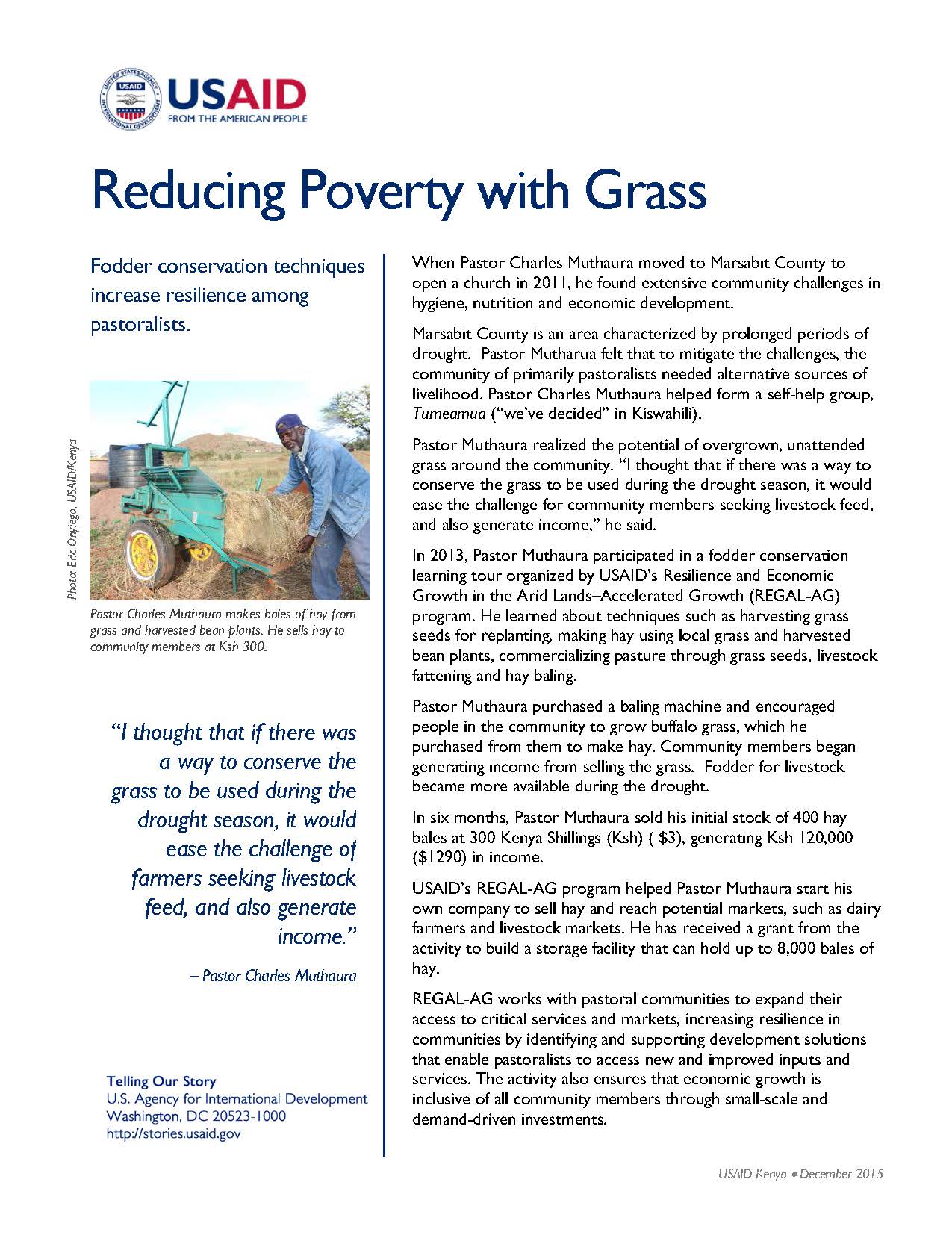![]() (120k) Reducing Poverty with Grass
(120k) Reducing Poverty with Grass
When Pastor Charles Muthaura moved to Marsabit County to open a church in 2011, he found extensive community challenges in hygiene, nutrition and economic development.
Marsabit County is an area characterized by prolonged periods of drought. Pastor Mutharua felt that to mitigate the challenges, the community of primarily pastoralists needed alternative sources of livelihood. Pastor Charles Muthaura helped form a self-help group, Tumeamua (“we’ve decided” in Kiswahili).
Pastor Muthaura realized the potential of overgrown, unattended grass around the community. “I thought that if there was a way to conserve the grass to be used during the drought season, it would ease the challenge for community members seeking livestock feed, and also generate income,” he said.
In 2013, Pastor Muthaura participated in a fodder conservation learning tour organized by USAID’s Resilience and Economic Growth in the Arid Lands–Accelerated Growth (REGAL-AG) program. He learned about techniques such as harvesting grass seeds for replanting, making hay using local grass and harvested bean plants, commercializing pasture through grass seeds, livestock fattening and hay baling.
Pastor Muthaura purchased a baling machine and encouraged people in the community to grow buffalo grass, which he purchased from them to make hay. Community members began generating income from selling the grass. Fodder for livestock became more available during the drought.
In six months, Pastor Muthaura sold his initial stock of 400 hay bales at 300 Kenya Shillings (Ksh) ( $3), generating Ksh 120,000 ($1290) in income.
USAID’s REGAL-AG program helped Pastor Muthaura start his own company to sell hay and reach potential markets, such as dairy farmers and livestock markets. He has received a grant from the activity to build a storage facility that can hold up to 8,000 bales of hay.
REGAL-AG works with pastoral communities to expand their access to critical services and markets, increasing resilience in communities by identifying and supporting development solutions that enable pastoralists to access new and improved inputs and services. The activity also ensures that economic growth is inclusive of all community members through small-scale and demand-driven investments.








Comment
Make a general inquiry or suggest an improvement.